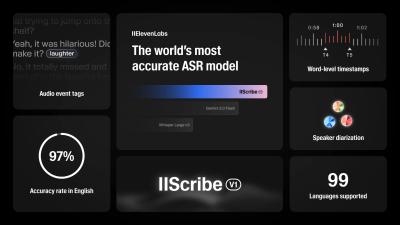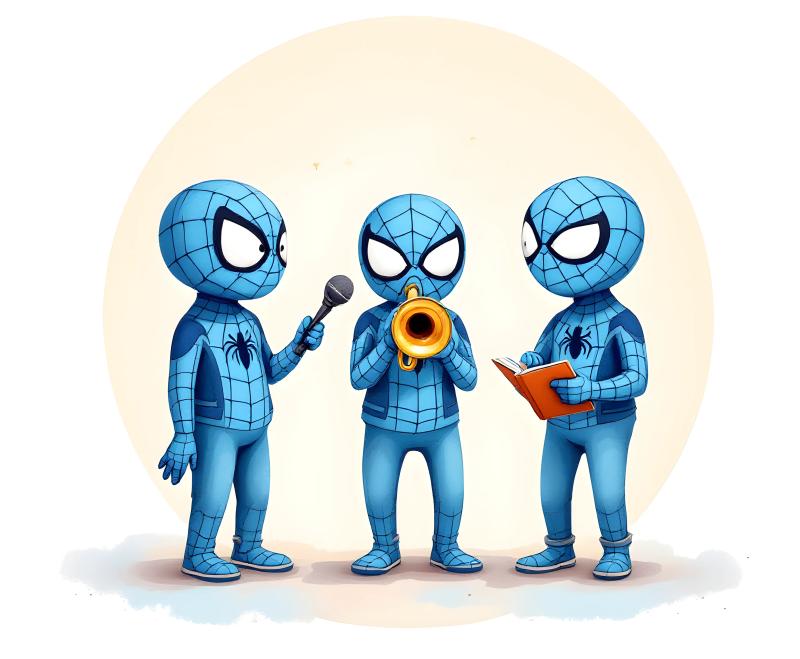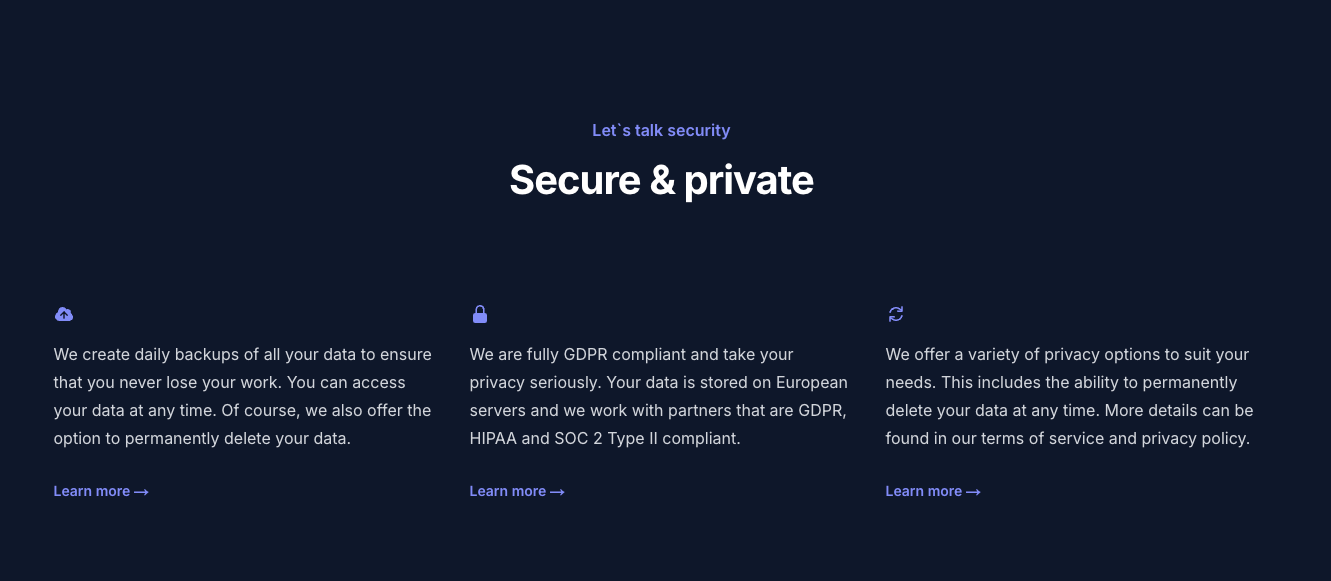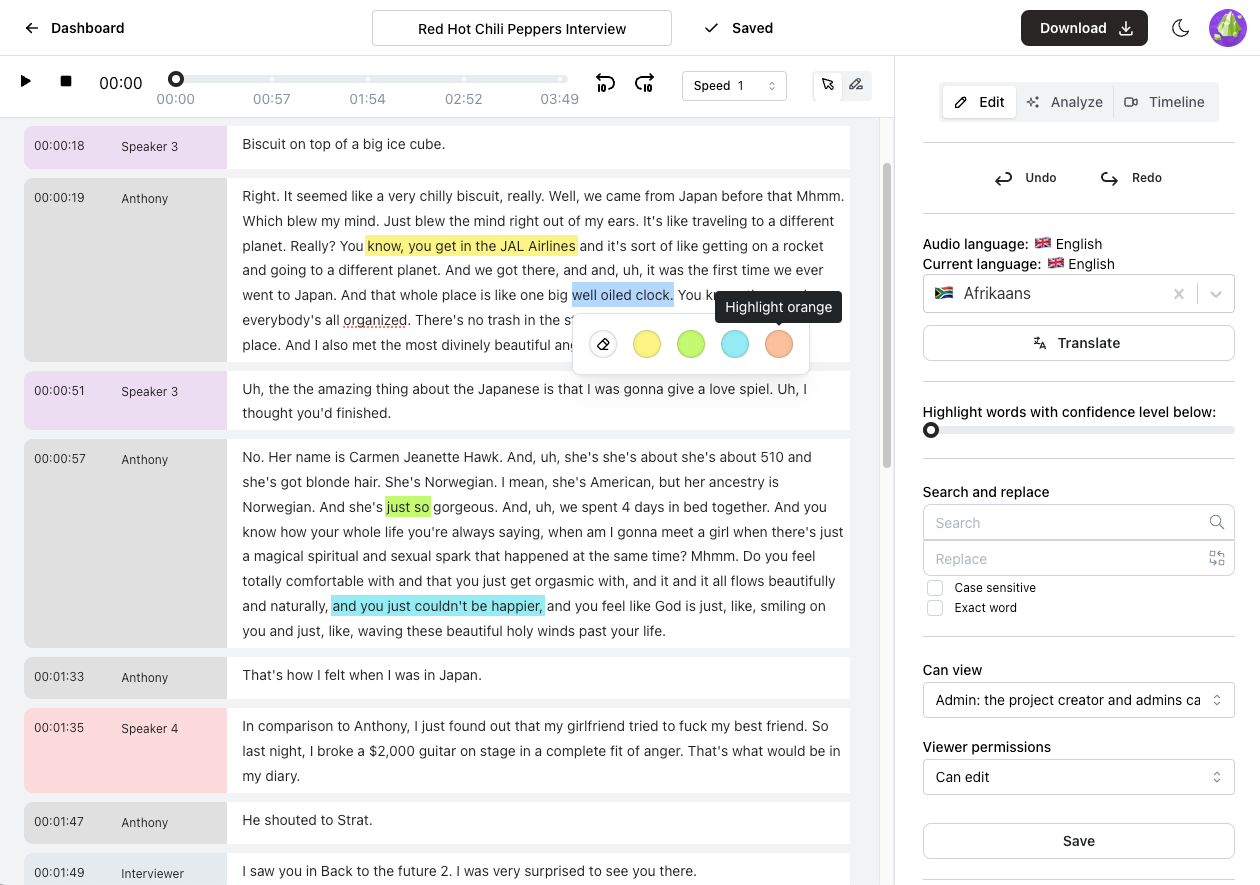
January 3, 2025 · 9 min read
What is transcription?
This article presents a comprehensive guide to what the term “transcription” means and delves into different techniques to turn audio into written text.

1. Defining Transcription: A Multifaceted Term
The term “transcription” is versatile, carrying different meanings depending on the context. In its broadest sense, transcription refers to the process of transferring information from one source to another. This can include anything from converting handwritten notes to digital files, or transcribing music into a new arrangement; detailed instructions for the different instruments on how to play their parts.
The word “transcription” comes from the Latin transcribere, meaning “to write across” or “to copy.” It combines trans- (across) and scribere (to write), reflecting the idea of transferring information from one form to another.
However, in the realm of language and technology, transcription often refers to the conversion of spoken or audio content into written text. This specific type of transcription has become increasingly important in various fields, from academia and business to law and medicine.
2. Zooming in on speech-to-text transcription
Speech-to-text transcription, a subset of transcription, involves converting audio or video recordings into written text. This can be accomplished through manual or automatic methods.
Manual transcription: the human touch
Manual transcription is a time-consuming process that requires a skilled transcriber to listen to audio or video recordings and accurately type the spoken words. While it offers high accuracy, manual transcription can be costly and slow, especially for large volumes of content.
Automatic transcription: the power of technology
Automatic transcription, on the other hand, leverages advanced speech recognition technology to convert audio or video into text. This method is significantly faster and more cost-effective than manual transcription. However, the accuracy of automatic transcription can vary depending on factors such as audio quality, background noise, and the complexity of the spoken language.
Popular automatic transcription services
Several online services offer automatic transcription capabilities for a monthly fee:
- Riverside transcription: Known for its audio editing and enhancement capabilities
- Otter.ai: A popular choice for real-time transcription and collaboration.
- Descript: Offers text-based editing features
- Turboscribe: Popular among students for its generous free tier.
- HappyScribe: Also offers manual transcription
By understanding the nuances of transcription and the advantages and disadvantages of manual and automatic methods, you can make informed decisions about how to best utilize this powerful tool in your work and personal life. Of course, I write this blog post because I want you to consider one additional tool, which is not coincidentally the transcription service that I’ve built.
What Scribewave does differently
Scribewave was born out of frustration with the limitations of existing transcription services. As a Belgian, I found that tools often struggled with smaller languages like Dutch and Flemish, delivering poor accuracy and unreliable results. The lack of support for these languages made it clear to me that current solutions weren’t inclusive enough. That’s why I created Scribewave: to build the most accurate and reliable transcription service for underrepresented languages.
Your data, your privacy
Many online tools compromise privacy by using your data to train their models. Often, human annotators manually listen to files, creating potential privacy concerns. While training models is valuable, it should never come at the cost of your security. As a researcher, I was unwilling to entrust sensitive data to services that didn’t respect my privacy.

At Scribewave, we’ve taken a different approach. Our platform offers a fully automated self-learning algorithm that trains on your own edits. This ensures your data stays private while providing you with personalized improvements over time. Scribewave delivers the best of both worlds: a cutting-edge transcription experience tailored to you, without compromising security.
Flexibility like never before
Another pain point with existing solutions was their rigidity. They lacked support for diverse file types, didn’t allow bulk uploads or downloads, and offered limited export options. Scribewave solves these challenges by giving you complete flexibility. We focus on the features you need, and don’t bother you with fancy but useless bells and whistles.
Some of our unique features include:
- Bulk Support: Upload and download your files in bulk, saving you time and effort.
- Multi-format Exports: Export your transcriptions as text documents, subtitles, or even Premiere Pro projects, with full control over formatting, offsets, and subtitle frames.
- Specialized Editor: Make corrections in a time-synced editor that learns from your edits to improve your personal algorithm.
The fastest, most accurate transcriptions
Scribewave supports over 90 languages, including, but not limited to: Dutch, French, German, Portuguese, Swedish and Italian. For these languages we guarantees the most accurate results in the market. Our advanced AI model ensures lightning-fast transcription without compromising on quality.

Innovative features for modern users
Scribewave isn’t just about transcription; it’s a comprehensive tool designed to simplify your workflow.
- Built-in Translations: Translate your transcripts instantly.
- Private AI Features: Chat with your transcript using a secure AI assistant.
- WhatsApp Bot Integration: Send voice memos directly from your phone to our platform for instant transcription.
An all-in-one online transcription solution for professionals
Whether you’re a journalist, researcher, or video professional, Scribewave offers a versatile and powerful toolset tailored to your needs. With a user-centric design and fair usage-based pricing, we provide a transcription experience that’s accurate, private, and flexible.
Ready to see the difference? Try Scribewave for free today and experience a new kind of transcription.
About the author
Ulysse Maes
In a world where Ulysse can't out-flex The Rock or out-charm Timothée Chalamet, he triumphs as the mastermind behind Scribewave, fiercely defending his throne as the king of nerds in beautiful Antwerp, Belgium.
Related articles
Discover more articles about transcription, subtitling, and translation

